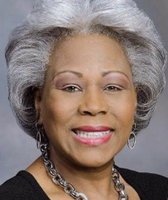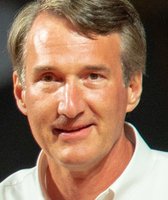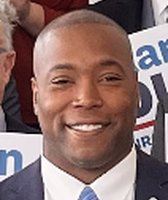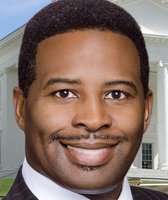Get PolitiFact in your inbox.
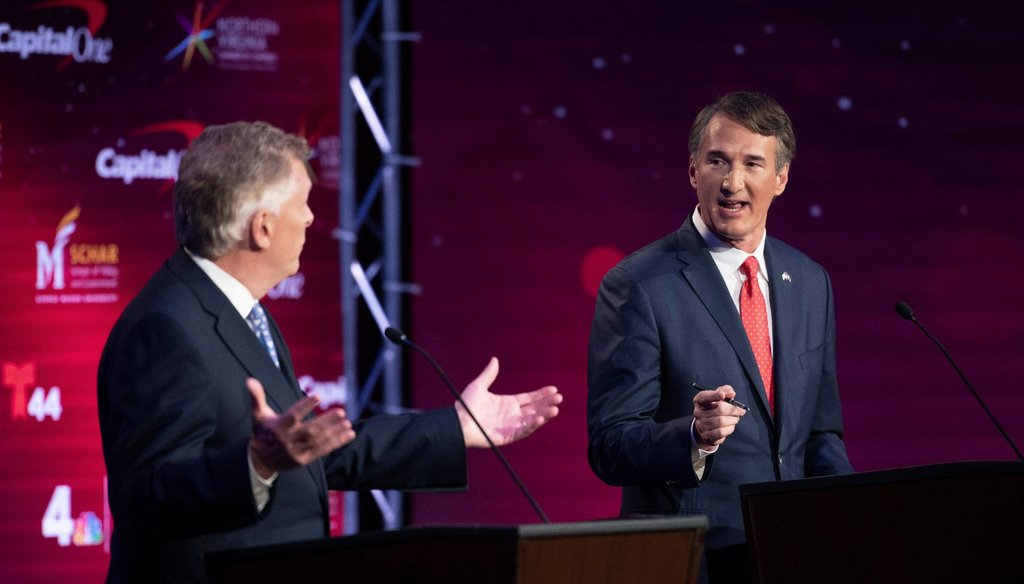
Virginia Democratic gubernatorial candidate and former Gov. Terry McAuliffe, left, and Republican challenger, Glenn Youngkin, participate in their debate at Northern Virginia Community College, in Alexandria, Va., Tuesday, Sept. 28, 2021. (AP Photo/Cliff
If Your Time is short
Here's a quick review of statements McAuliffe and Youngkin about vaccines, education and Virginia's economy.
Democrat Terry McAuliffe and Republican Glenn Youngkin held their final gubernatorial debate on Sept. 28, disagreeing on coronavirus vaccines, taxes, education and abortion. A third candidate, Princess Blanding of the Liberation Party, was excluded by debate organizers.
McAulife and Youngkin made a number of statements that were familiar to PolitiFact. Here’s a fact-checking rundown of those claims:
Youngkin: No more than five or six weeks ago, Terry McAuliffe shared my views that companies should not mandate (vaccines)...He changed his views completely."
McAuliffe, in a TV interview aired May 31 by WJLA in Arlington, was asked if children eligible for the COVID-19 vaccine should be required to get it before attending schools.
"Listen, I think it’s up to every school district to make their own decisions on what they want to do." he said. "I clearly, as governor, would have a goal that every child in Virginia gets vaccinated. I would have a goal that every person in Virginia gets vaccinated. And if private businesses want to require vaccinations before you come into their businesses, that’s up to the business, they ought to be able to make that decision."
McAuliffe was asked the same question during a Sept. 17 debate with Youngkin,
"First of all, I’ve been very out front on people getting vaccinations,'' he said. "I’ve called for employers to mandate it for their employees, I’ve called for everyone who works in a hospital to be vaccinated. I’ve called for every individual who works at a long term care facility or a nursing home, everybody who works in K-12, everybody who attends higher ed. I have been very strong on this from day one."
McAuliffe: Youngkin "told college students, if you don’t want to get (a vaccine), fill out an exemption for whatever reason."
McAuliffe was referring to comments Youngkin made June 11 in Fairfax County.
"I’m really frustrated with our universities across Virginia who are requiring the vaccine in order to come back to class," Younkin said. "They do have an exception policy because I actually looked at the Virginia Tech one. And I encourage people to fill it out and stand for your exemption. And when I’m elected governor, we’ll figure out how to get it fixed permanently.
But between now and then, I think we should encourage everyone who does not want to get the vaccine for whatever reason, who has a child attending one of the universities...fill out the exemption form."
Youngkin: "We, in fact, find Virginia losing out with families moving away to other states faster than they are moving here because our taxes are too high."
Youngkin’s statement is supported by annual statistics from The Internal Revenue Service on the number of households that moved and filed federal tax returns from a different state than the one in which they lived the previous year. Demographers and economists use these figures to track the "net migration" of families in the U.S. from year to year.
The data show that from 1991 through 2012, Virginia always had more households coming in than going out. That changed in 2013, when there was a net loss of 4,270 households. Virginia had fewer filing households in each of the next five years - an average annual loss of 5,600 families. In 2018, the last year for which figures are available, Virginia lost a net of 4,707 households.
This doesn’t mean there’s been a massive flow out of Virginia. To give some perspective, about 4 million Virginia households annually file federal taxes. The net losses to other states in 2018 came to less than one-eighth of 1% of households.
Demographers say jobs were the main reason people left Virginia for other states early in the last decade. Northern Virginia lost jobs due to sequestration policies beginning in 2013 that cut federal spending when Congress couldn’t agree on a budget. By mid-decade, the main reason people left was to escape the high cost of living in Northern Virginia according to a study from United Van Lines.
We’ve rated a similar statement by Youngkin Mostly True.
McAuliffe: Youngkin’s "plan will cut 43,000 teachers."
McAuliffe gets this eye-popping figure from a recent report by Virginia Excels, a liberal education group. Youngkin said in April that he was working on a plan to eliminate the state income tax. All of the studies are based on the assumption that he would repeal the tax, which provides about 70% of the state’s funding to public schools, public safety and health programs.
The problem is that Youngkin is no longer calling for the end of the income tax. In August, he settled on a more modest plan that would double the standard deduction for individuals to claim on their state income tax returns. We’ve not seen an independent estimate on the cost of raising the deductions.
Youngkin: "My opponent watered down standards in schools…"
We’ve rated a similar claim by Youngkin Mostly True.
McAuliffe, as governor from 2014 to 2018, led an effort to ease school accreditation standards. In the past, accreditation was almost entirely based on the percentage of students who passed state standardized tests.
In 2017, amid a wide outcry for change, McAuliffe’s hand-picked state School Board added measures to determine whether a school is accredited, such as absenteeism, achievement gaps between students of different backgrounds and whether a school is showing improvement on the state exams.
Eighty-eight schools were denied accreditation the year before the reforms took effect. None have been denied certification since.
McAuliffe ran for governor in 2013 promising to deemphasize the state’s reliance on its standardized tests in determining public schools’ accreditation. At least 30 local school boards demanded such reforms and the General Assembly overwhelmingly ordered it in 2015. So, the changes were not brought unilaterally by McAuliffe, as Youngkin suggests. There was a strong bipartisan calling.
McAuliffe: "I inherited a $2.5 billion deficit."
McAuliffe persists with this claim blaming Republicans for budget issues he faced as governor. In the past, we’ve rated versions of it False or Pants on Fire. The Washington Post’s fact checker has rated it "Four Pinocchios."
Virginia law requires a balanced state budget. When McAuliffe took office in January 2014, he inherited two balanced budgets from his predecessor, Republican Bob McDonnell. Early in McAuliffe's term, state revenues began to fall in response to federal spending cuts and changes in capital gains taxation.
In February 2014, McAuliffe cut Virginia’s revenue estimates by $140 million, but said the state’s "underlying economic forecast has not changed." In August, McAuliffe estimated the shortfall had gradually grown to $2.4 billion and ordered budget cuts and adjustments to fill the hole.
The revenue plunge, while not McAuliffe’s fault, happened under his watch - not McDonnell’s.
Our Sources
Second McAuliffe-Youngkin debate, Sept. 28, 2021
Terry McAuliffe, WJLA interview, May 31, 2021
McAuliffe, Debate comments, Sept. 16, 2021 (5:29 mark)
McAuliffe, Twitter, Sept. 16, 2021
PolitiFact Virginia, "Are more people leaving Virginia for other states than moving in?" May 21, 2021
PolitiFact Virginia, "Fact-checking the first McAuliffe-Youngkin debate," Sept. 17, 2021
PolitiFact Virginia, "McAuliffe helped ease school accreditation standards as governor," Aug. 18, 2021
PolitiFact Virginia, "Terry McAuliffe keeps repeating bogus budget claim," June 15, 2021
The Washington Post, "McAuliffe doubles down on false budget claim that has been fact-checked three times," June 14, 2021












